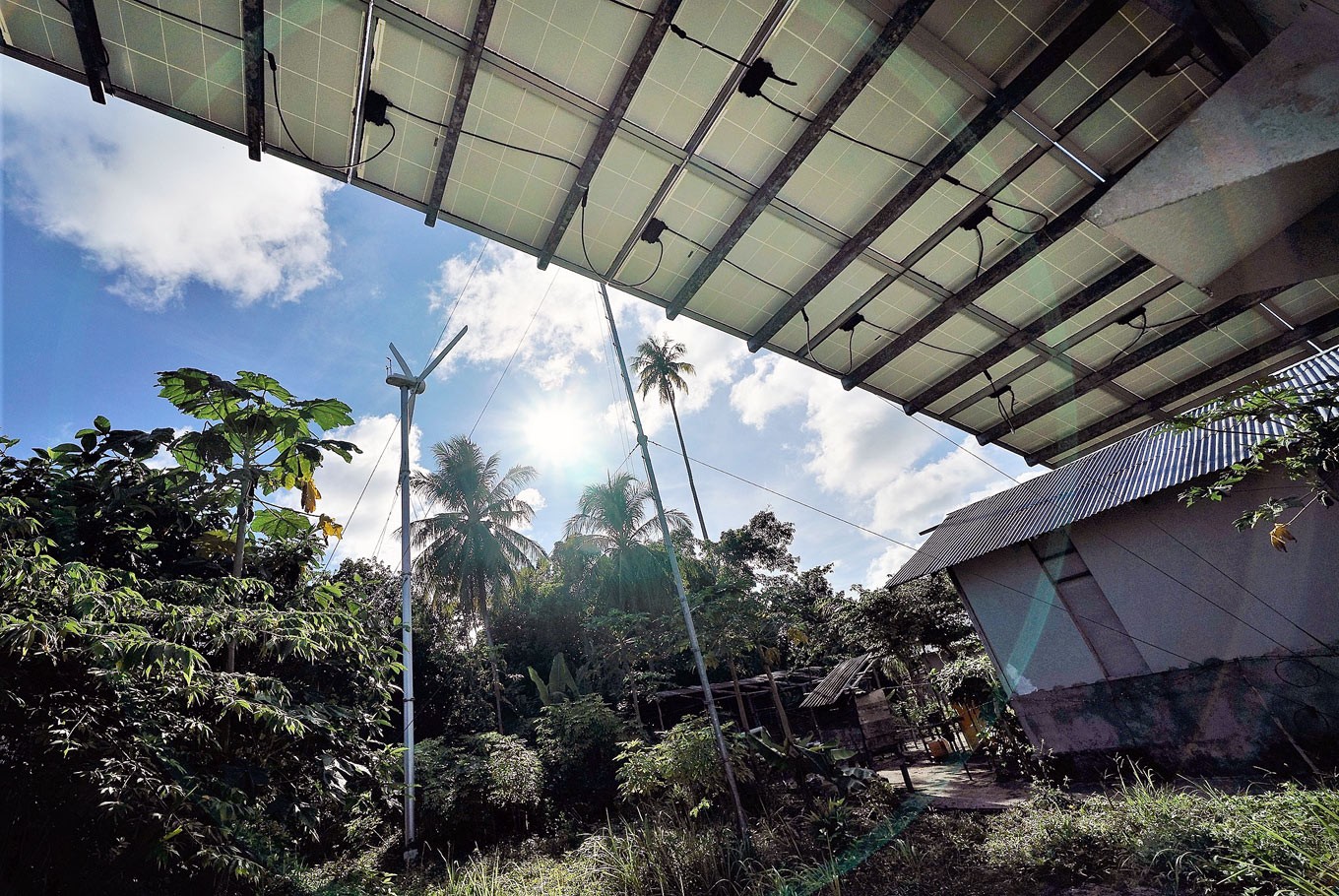Popular Reads
Top Results
Can't find what you're looking for?
View all search resultsPopular Reads
Top Results
Can't find what you're looking for?
View all search resultsRegulation hampers rooftop solar power program: Association
Change text size
Gift Premium Articles
to Anyone
T
he Rooftop Solar Power Users Forum (PPLSA) has called on the government to revoke a ministerial regulation that has discouraged PLN users from installing photovoltaic (PV) cells on the roofs of their homes.
The PPLSA took aim at Energy and Mineral Resources Ministerial Regulation No. 49/2018 on rooftop solar power systems for customers of state-owned electricity company PLN, which was issued on Nov. 15, 2018.
PPLSA chairman Yohanes Bambang Sumaryo said that for many PLN customers the energy import and export calculation, as ruled by the regulation, was not considered economical.
He referred to Article 6, paragraph 1, of the regulation that ruled that electricity exported from rooftop solar power systems was only calculated at 65 percent of the production recorded by the export-import meters.
“For us, it significantly reduces the economic value of rooftop solar power,” he said as quoted by kontan.co.id on Sunday, adding that this was because 90 percent of PLN customers, who had installed rooftop solar power systems, still relied on electricity supplied by PLN for nighttime usage.
He added that because of the regulation, about 30 percent of rooftop solar power system users preferred to shift from on-grid to off-grid systems even though they would have to invest more to purchase batteries.
Yohanes also criticized the requirement that rooftop solar users had to seek an agreement with PLN to install the equipment and that it could only be installed by certified institutions.
Institute for Essential Services Reform (IESR) executive director Fabby Tumiwa shared Yohanes’s opinion, saying that the regulation hampered the rooftop solar power program. “With the 60 percent export calculation, the returns on investment will take 11 to 12 years,” he said, adding that if the electricity production was calculated at 100 percent, the return on investment would take around eight years. (bbn)










